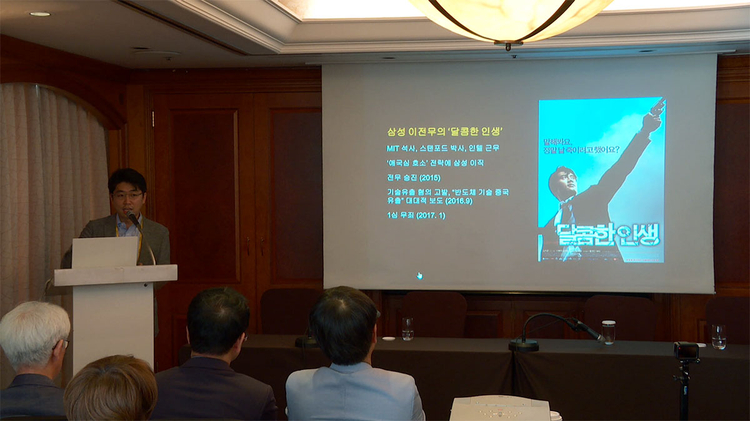
Where Should Korean Investigative Journalism Head to?
2018년 10월 08일 17시 13분
[This article was written by student reporters of IJAsia18.]
On the first day of IJAsia18, four journalists from Indonesia, India, Korea and Japan shared their experiences about dealing with leaked data and documents, handling the legwork and especially working across borders with other journalists at the session titled Cross-Border Investigations: Following the Money.
Scilla Alecci, an investigative reporter and video journalist for International Consortium of Investigative Journalists (ICIJ) led the session. She is widely known as a Pulitzer Prize winner with the Panama Papers investigation.
Alecci emphasized that “following the money” is one of the oldest models that journalists have been following to expose powerful figures and companies of their massive corruptions, violations and tax evasions. Though the degree of press freedom or availability of public documents varies from country to country, journalists share a common ground in that they can use their skills to find the truth, especially with the help of collaborating with their counterparts across borders.
Wahyu Dhyatmika, the editor-in-chief of Tempo Newsroom of Indonesia, emphasized that finding the context and connections in leaked documents is key to investigation.
Finding the context:
- Research stories around the names found.
- Dig up court cases and other relevant sources that have connection to the companies and individuals in the data.
- Interview experts and players in the related businesses.
Ritu Sarin, Executive Editor of the Indian Press of India, was next to further elaborate on connecting the dots from massive data leaks. She illustrated the complex nature of transactions with visual aid, and explained that multiple layers have to be mapped out to determine, for example, offshore transactions and companies, and especially the incidents involved with the Panama leak. “Money trails can be complicated,” Sarin observed.
She emphasized the importance of legwork as a journalist.
“Along with following the money trails, don’t forget the basics of journalism; go to the spot and speak to the people there,” she said.
Boyoung Lim, a police officer-turned-journalist working at the Korea Center for Investigative Journalism(KCIJ)-Newstapa, shared thorough examples of her experience in investigative journalism and emphasized the collaboration of journalists across borders, in which she explained through her probe into Samsung Netherlands.
She also mentioned the challenges in cross-border investigations.
“It takes twice as much time working with international partners because we have to translate both ways for everything,” Lim said.
Lim gave some suggestions to the journalists at the session.
- Investigate all data, both domestic and international.
- Share data with international newsrooms.
- Be diligent and meet deadlines.
Yasuomi Sawa, Senior writer for the Japanese news agency Kyodo News, shared his unique experience about international effort. Sawa teamed up with rivals, specifically about being part of the team to work on the Panama Papers.
“It gives a great opportunity to go beyond your newsroom, which is rare in Japan,” Sawa said. “I also got to learn valuable skills and knowledge from my rival who I teamed up with.”
Veteran reporters talk about their experiences in cross-border investigations.
report : Kim Jeemin
뉴스타파는 권력과 자본의 간섭을 받지 않고 진실만을 보도하기 위해, 광고나 협찬 없이 오직 후원회원들의 회비로만 제작됩니다. 월 1만원 후원으로 더 나은 세상을 만들어주세요.